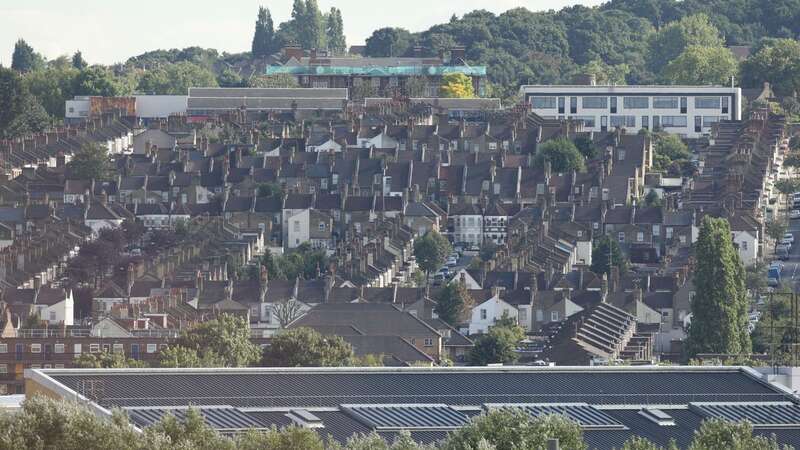
The growth in rental prices has decelerated to its lowest point in two and a half years, yet the competition for homes is still intense, according to property website Zoopla.
Zoopla reported that the annual inflation rate for new lettings was at 6.6% in April, with the average rent having risen by £80 per month compared to the previous year. The 6.6% increase marks the slowest pace of annual rental price inflation since October 2021, indicating a continued deceleration in the overall rate of rent inflation throughout the rest of 2024, the report further elaborated.
Despite a decrease in rental demand over the past year, there are still 15 prospective tenants vying for every available rental property, more than double the pre-pandemic average of six people, it stated. London is leading this slowdown with an annual growth in rental prices at 3.7%, according to Zoopla's report.
The average rent in London stands at £2,122, significantly higher than the UK average of £1,226. Zoopla anticipates that the market will see a deceleration in rental price growth to 5% in 2024.
This trend is being influenced by shifts in demand and affordability, rather than any increase in supply, it explained. The report stated: "Looking ahead, we do not believe that the imbalance between rental supply and demand will improve materially over the next 12 months."
 I'm a property expert - my guess for the cheapest time to buy a home this year
I'm a property expert - my guess for the cheapest time to buy a home this year
"Levels of new investment in the private rented sector remain low while demand is set to remain above-average. This means rents will continue to increase at a slowing rate."
Richard Donnell, executive director at Zoopla, revealed: "The increase in the cost of renting has slowed to a 30-month low. Rents continue to grow faster than average earnings although the gap is much narrower than a year ago. Rental demand continues to run well ahead of available supply which is keeping the upward pressure on rents but there are some areas where rental growth has stalled."
He added: "Growing the supply of rented homes, both private and affordable, should be among the top housing priorities for the next government. A healthy private rented sector is vital for economic growth and a more balanced housing market. More supply is the fastest route to easing the pressure on renters and improving the overall quality of rented homes."
Nathan Emerson, chief executive of property professionals' body Propertymark, said: "Our member agents have told us for years of the growing disparity in the number of private rented homes on the market in comparison to the rising demand from tenants."
Meanwhile, Adam Jennings, head of lettings at London-based property firm Chestertons, noted: "The recent increase in the number of available properties has created a slightly better environment for tenants wanting to move. We have seen a momentary slowdown of rent increases but are expecting more tenants to start their search over the summer months."
Here is the breakdown of average rents per month in April and the respective annual increase, as provided by Zoopla:
For the East Midlands, it's £862, an increase of 7.3%.
East of England, £1,173, 8.2%.
London, £2,122, 3.7%.
North East, £704, 9.5%.
 I live on one of the UK’s ‘cheapest streets’... but it won’t last for long
I live on one of the UK’s ‘cheapest streets’... but it won’t last for long
North West, £855, 8.4%.
Northern Ireland, £747, 2.9%.
Scotland, £797, 9.3%.
South East, £1,321, 7.9%.
South West, £1,072, 7.8%.
Wales, £872, 7.8%.
West Midlands, £909, 7.8%.
Yorkshire and the Humber, £800, 7.0%.
Read more similar news:
Comments:
comments powered by Disqus
































